Ed Beach didn’t set out to make the perfect game; he just wanted to fix his favorite.


Ed Beach didn’t set out to make the perfect game; he just wanted to fix his favorite: a massive, broken game he discovered in college.
He and his friends would play for days. They developed strategies. Fell into familiar roles. Tried again and again to best the game that they simply could not beat.
This game - this magnificent bastard of a game - would become a driving force in Ed’s life. It would nurture his hobby into a passion and transform his passion into a career. He would go from Dartmouth, to NASA to professional game development, and his desire to fix the unbeatable game that had been a favorite of his youth would be always on his mind.
Ed’s journey would eventually take him all the way to Firaxis, the home of the most popular strategy game ever created.
A game he would reinvent. Twice.
The first time, as a member of the team building Civilization V. The second, as lead on the new expansion, due out later this summer.
This is why we are here.
Let us take you along on Ed’s journey from hobbyist to game developer. From strategy game fan to strategy game god. Along the way we will also give you a tour of the upcoming expansion to Civilization V, Gods & Kings.
And yes, we will also show you how Ed fixed his favorite game.
A mighty tortoise
While he was an undergraduate at Dartmouth, Beach was introduced to the game that would change his life: A Mighty Fortress.
Originally published in 1977, A Mighty Fortress is a board game that attempts to tackle a very small slice of history with the depth and precision of a doctoral thesis. The game covers the years 1532 to 1555, a 24-year period during which the the Ottoman Empire dominated much of Central Asia, the Holy Roman Empire began to crumble, Martin Luther reformed the Catholic Church, England's King Henry VIII went through wives like a pastry chef through butter and much of the world as we know it today began to take shape.
Players can play as England, France, The Catholic Church, The Lutherans, the Ottoman Empire or Charles V and must suss out their nations's unique strengths and weaknesses and alter their style of play accordingly. A massive exercise in asymmetrical gameplay, it is as much about diplomacy as it is about war.
The nuanced approach to history and complicated demands appealed to Beach's sensibilities. A self-professed strategy game enthusiast from the age of 10, Beach likes games where the action is not always straight forward combat, and the players are free to form secret alliances and negotiate their way to victory. Where the sides are uneven, and a player's ability to riser above the challenges can lead him to victory.
At Dartmouth, Beach always got stuck playing The Holy Roman Emperor Charles V, attempting to hold together his Empire against threats from all sides. It is the most powerful nation, militarily, but each of the other nations have objectives that pit them in direct opposition, making it a challenging nation to lead.
Beach's Italian exchange student friend was frequently cast as the Pope, who is tasked with holding the Catholic Church together in the face of Martin Luther's Protestant revolt. Whereas the Ottoman Empire, ceded to Beach's most aggressively playing friend, simply had to try and dominate all of Europe, picking up whatever territories other players left unattended.
While it convincingly captured the flavor of the Reformation era, one thing the Reformation had that A Mighty Fortress did not was an end. Although he played the game all through college, Beach never once finished it.
THE BOARD GAME FROM HIS COLLEGE YEARS HAUNTED HIM

This led to his informal game group's affectionate moniker: "A Mighty Tortoise."
Beach graduated from Dartmouth with a triple major (Computer Science, Russian Language and Literature) and went on to work at NASA as a software developer, but his passion for games never left him. In his spare time, Beach would tinker with game designs, poring over historical maps and attempting to refine his ideas.
His first game design, Stonewall's Last Battle, was published as part of Avalon Hill's Great Campaigns of the American Civil War series, and he would go on to take the lead role on that series for publisher MMP.
In 1999, Beach transitioned to making games full time, working for BreakAway games, making PC strategy games and expansions sets. The work suited his interests, but here weren't enough opportunities for the kinds of grand strategy games he wanted to be making. He kept looking.
Meanwhile, he was still tinkering with his own designs. The board game from his college years haunted him as an adult. He'd gained so much knowledge, but the key to turning the mess of "A Mighty Tortoise" into something truly revolutionary was just out of his grasp.
The answer, when it came, would be as simple as turning over a card, and it would propel Ed Beach from obscurity to the major leagues of strategy game design.
Here Ed stands
In the middle of the last decade, Ed Beach was introduced to a card-driven strategy game called Napoleonic Wars. In his designer's mind, something clicked. The bulwark fell. The way to fix A Mighty Fortress had finally been revealed.
Here I Stand, Ed Beach's first card-based strategy game was released in 2006. It was A Mighty Fortress reborn. Streamlined. Made more interactive. And, most importantly, it was finish-able.
It was a critical and commercial success.
Here I Stand won multiple awards at online board game purveyor BoardGameGeek.com, Germany's Walter Luc Haas Award for historical simulations and the Charles S. Roberts Award for best pre-WW II board game. It was the board game equivalent of Game of the Year for 2006.
More importantly, it sold. A lot. Here I Stand was the first board game Beach had ever designed that required a second printing. With it, Beach had accomplished his goal of re-creating the epic, but flawed game that had captured his imagination as a young man.

THE BULWARK FELL. THE WAY TO FIX A MIGHTY FORTRESS HAD FINALLY BEEN REVEALED
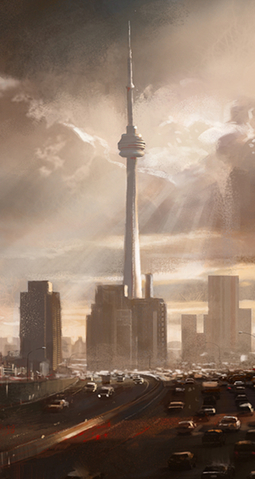
The triumphant music swells.
The montage of fast-forward celebratory imagery begins:
- Beach cashing a check.
- Strategy gamers around the world opening copies of Here I Stand.
- Hobby store shelves selling empty.
- The members of Beach's Dartmouth game group, who served as play-by-email testers for Here I Stand, giving high fives.
- The phone ringing - it's Firaxis. Can Ed Beach help re-design Civilization?
Full stop.
Yes, that Firaxis. That Civilization.
Beach said yes.
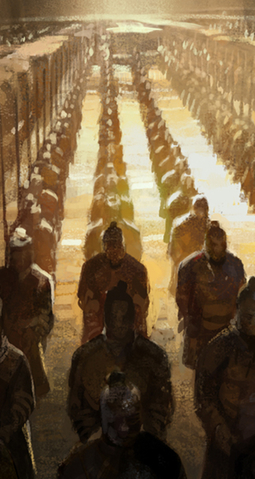
Gandhi gonna Gandhi

Sooner or later, Gandhi's gonna drop the bomb.
It doesn't matter who struck first, who owes who, or who's winning the fight. If you give him the chance, Gandhi will nuke you 'til you glow. That's just what he does.
It's not personal. He just can't help it. It's in his code.
Ed Beach should know. He put it there.
Beach was hired at Firaxis more than four years ago. In the time since, he has worked on one game: Civilization V. Coding Gandhi's AI (and that of the rest of the civilization leaders) was a big part of his job description.
"Gandhi being a little bit of a loose cannon is something that they've had in a couple of Civ titles," Beach told Polygon. "That's actually just in the AI system. There's a setting for how likely different leaders are to either all of a sudden go to war, or use nuclear weapons."
Beach didn't create the Gandhi-as-Strangelove trope, but as lead AI programmer onCivilization V, it was his responsibility to get it right. It's a simple bit of code that, if tweaked, changes Gandhi from a peace-loving, non-violent philosopher to a nuke-dropping sociopath at the drop of a hat.
It's an oddity in a game that, in many other respects, gets a lot of historical detail just right, but that doesn't bother Beach. It's what the Civilization fan base expects, and he's all for it.
What bothers Beach about Civilization isn't that Gandhi is a nutbar; it's Gandhi's religion.
"WE WANTED TO TAKE A STEP BACK WITH HOW RELIGION WAS USED IN CIV 4."
"I kept looking at [religion in Civilization] and thinking 'well that should be changing how the game is playing,'" Beach says. "And the followers of Buddhism should maybe be more peaceful, or more happy. And I'm not seeing that in the game; all the religions were kind of identical."
Dismissed by hardcore wargamers for its trite approach to strategy, the Civilization series is nevertheless the most popular and widely recognized strategy game in the world. Perhaps specifically because of its trite approach to strategy.
Yet the team building the fifth iteration knew that Civ had gone about as far as it could go in normalizing turn-based strategy for the masses. And they knew the one thing it had never gotten right was religion.
"We wanted to take a step back with how religion was used inCiv 4," Beach says.
Beach worked side-by-side with lead Civilization V designer, Jon Shafer, providing most of the design for the different civilizations in Civ 5. How they played, what bonuses they were granted. What it felt like to play as the Germans vs. the Russians. The goal was to create a game that was both more accessible and more strategic than its predecessors, and while Beach agrees with a lot of the initial design decisions, there are some things he would have done differently.
Religion, for one. Religion was removed entirely from Civ in order to accommodate Shafer's design. The team had plans for how to approach the concept a little differently, but the priority was rewiring diplomacy to focus more on how other civilizations are treating the player. So religion took a back seat. Which turned into being left behind in the garage.
Now, after the departure of Shafer, Beach has taken the reins, heading up development on the DLC and the forthcoming expansion pack, titled Gods & Kings.
The title alone gives some clue as to where Beach's head is at.
Gods & Kings
"In doing the work on the expansion," says Beach, "we knew that we wanted to address a few people's concerns where, if you played Civ 4 with all of the expansions and all the corporations and espionage and everything else that was involved with Civ 4, it was a very deep game with lots of intricacies. Some of those diehard Civ 4 players were feeling likeCiv 5 just didn't have the same level of depth and intricacy. So we knew that we wanted to add some layers of complexity for Civ 5.
"So we ... dove off into the deep end of the religion side of things again."
Beach's goal: Make Civilization V play differently depending on the choices you make throughout the game.
Just like in A Mighty Fortress and Here I Stand, the players' choices will tailor their experience and alter the way the game plays out and how they must adapt to win. And unlike the religions in Civilization IV, religions in Gods & Kings will be unique and will allow players to affect the balance of power well into the later stages of the game.
"Historically a lot of religion is just the layering on of beliefs over places," says Beach. "Like when Christianity got to the new world and hit all of the native American cultures, there are weird interesting perversions of Christianity where Aztec gods are sort of reworked and recast into their new Christian equivalent, but a lot of those belief sets were still there at a fundamental level."
In spite of the similarities to world religions, however, Beach says the beliefs themselves have been purposefully homogenized. Civilization V religions are not meant to represent direct approximations of actual world religions. The game is not making a judgement call as to which world religions make for a better civilization. You will be allowed to create your own religion from scratch, whether it's Sid Meierism or Pastafarianism.ED BEACH ON PROGRAMMING RELIGION
"There is a fine line to be crossed there where we don't want to go too far in the direction of just having the game playing itself and having the simulation play out without people feeling they're empowered. The way religion spreads [in Gods & Kings] ... is handled by the game engine. There's a religious update that runs every turn and religion spreads to adjacent cities. The algorithm for that didn't need to be too crazy complex. I think it's probably even simpler in Gods & Kings than it was in Civ 4. It just needed to feel right, over the course of the first 500 - 1,000 years after the first religions are founded you want the world to start to fill up with them, and that's all we needed was an algorithm that gave the sense that it felt right for that. So we didn't have to create a really deep simulation."
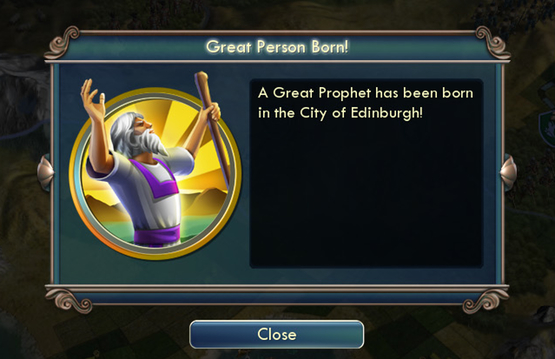
Religions in Gods & Kings are built step-by-step, starting with basic, core beliefs like "Fertility Rites." Players will accrue "faith" and then use faith points to purchase beliefs. Those collected beliefs become a pantheon. Then, similarly to how most real world religions were founded, that pantheon is forged into an established religion.
One example is the "Holy Warrior" belief. This will allow you to build an army by spending faith. It is the one aggressive use for faith inGods & Kings, but it can be a powerful one, and it adds yet another layer of complexity. Just one more way for players to take the tools the game provides and customize their experience to their play style.
"THERE ARE WEIRD INTERESTING PERVERSIONS OF CHRISTIANITY WHERE AZTEC GODS ARE REWORKED AND RECAST."
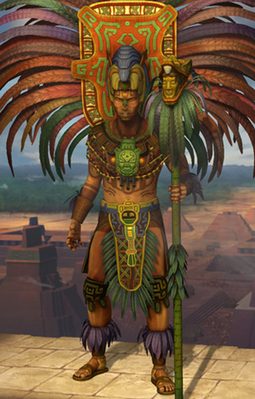
"Unlike in Civ 4," says Beach, "we are giving them a whole bunch of special abilities that make you really care about getting those religions into specific cities where they're gonna really have an impact on how your game is playing out."
Along with the expansion will be quasi-historical campaign scenarios, setting the player in the hot seat during some of the world's most tumultuous historical confrontations. Like the fall of the Roman Empire. Or, for example, the Protestant Reformation.
Beach isn't concerned he might add too much historical detail to Civilization. In fact, he's confident such a thing might not be possible.
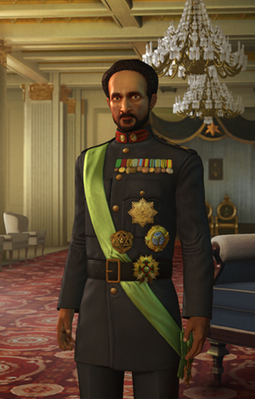
“If you look at the fan base for Civilization you have a lot of people who already are pretty immersed in history,” he says. “Even though we think we’re being very, very accurate embedding as much historical content as anyone would possibly want, there are still people on the fan sites who are nitpicking about specific things that we didn’t quite get right.
“So we know we have a fan base that’s interested in this stuff.”
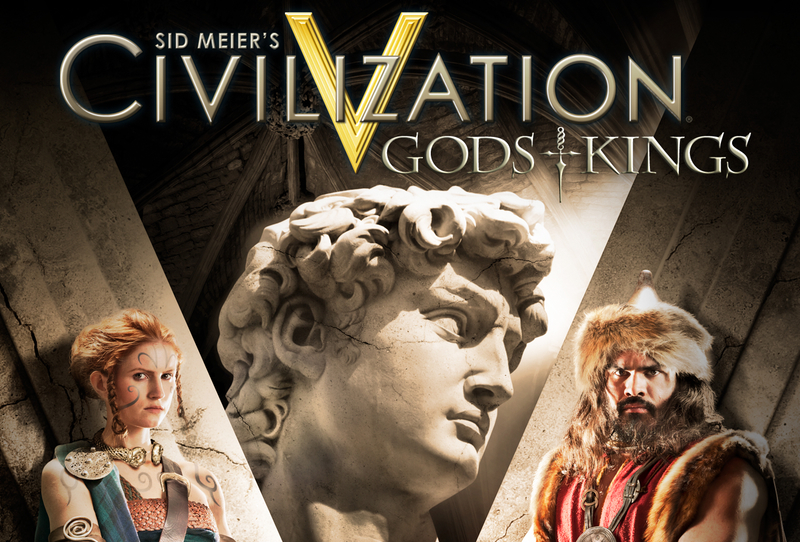
Gods & Kings isn’t just an expansion of Civilization V. It’s a re-imagining.
Although Beach acknowledges this is unusual for an expansion, even in the Civilization universe, he says the goal wasn’t to un-do what Shafer’s team had done.
“There’s a lot of the core game [that] I felt like I was actually working side by side with Jon on,” says Beach. “There [have] been about four or five designers that have all contributed to the Civ franchise, but I don’t feel like it was competitive or like [anyone was] undoing anything that the previous designer had done. There were a whole bunch of changes that Jon put in for Civ 5 that I felt like were very, very positive steps for the franchise and we could just take those and build on them and maybe take them to another level.”
Take them to another layer. Make them better than they were. Fix them. Just like he fixed A Mighty Fortress.
Beach’s award-winning board game, Here I Stand, is still selling like crazy. And he’s making a sequel, Virgin Queen, due out in May 2012.
He’s also still hard at work on Civ. As far as what the future may hold for Civilization and Ed Beach, it’s a safe bet to look towards the past.
Most Popular
- New California law means digital stores can’t imply you’re buying a game when you’re merely licensing it
- Xbox just surprise-dropped a bunch of games on Game Pass, and at least two of them are bangers
- Over the Garden Wall creator tackles yule-themed spooks in new comic anthology
- What Howl’s Moving Castle’s supervising animator wants you to appreciate on your next rewatch
- The Wild Robot should be the future of animation











